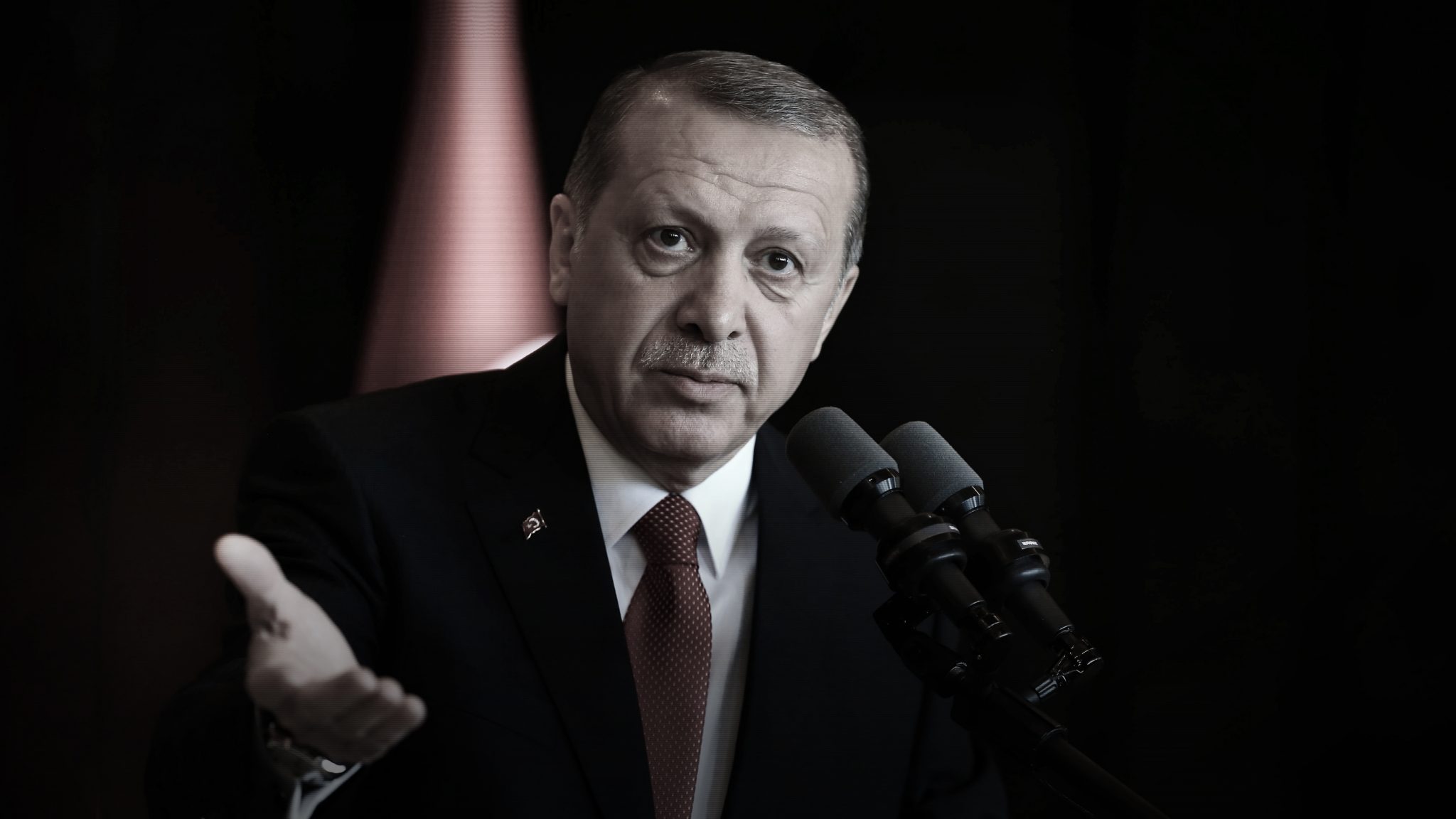
Vocal Europe: What is the real story of Donald Trump and Russia? The answer is still unclear, and Democrats in Congress want to get to the bottom of it with an investigation. But there’s no doubt that a spider web of connections—some public, some private, some clear, some murky—exists between Trump, his associates and Russian President Vladimir Putin. To what extent does this spider web of connections between Trump and Russia have an impact on the US’ foreign policy particularly vis-a-vis Russia?
Michael Carpenter: The real story is this: Russia launched a coordinated campaign using cyber-attacks and information warfare to interfere in our election, skew the result in Mr. Trump’s favor, and undermine the public’s confidence in our democratic institutions. It was a brazen attack on our democracy, secretly organized by Russia’s intelligence services, and executed in the shadows, out of the public view.
Frankly, we should have seen it coming given the types of people who were brought in to work on the Trump campaign. Russia’s intelligence services and Kremlin-connected oligarchs have for a long time excelled at weaponizing corruption to subvert democratic states. In Ukraine, for example, Russia has a history of using corrupt business ties to coopt members of the Ukrainian political and business elite, allowing the Kremlin to maintain influence at the highest levels of power. Trump’s campaign chairman was a part of this world, working as a political consultant for Ukrainian President Yanukovych, a kleptocratic leader who did Moscow’s bidding in Ukraine. It stands to reason that Russia would eventually use these same tactics against the West, and that is precisely what Mr. Putin has done over the last few years.
We know that individuals associated with the Trump campaign had numerous, recurring contacts with prominent Russians – businessmen, bankers, diplomats – connected to the Kremlin and to Russia’s intelligence services. We also know that as soon as the Trump administration came to power, it sought to remove sanctions against Russia that had been imposed under the Obama administration. During the campaign, Mr. Trump inexplicably disparaged NATO as obsolete – at a time when it was arguably never more relevant. He also successfully removed a key plank of the Republican Party’s platform that advocated for arming Ukraine so it could defend itself against Russia. Finally, Mr. Trump fawned praise on Mr. Putin as a leader.
While it is up to the FBI’s investigation to reveal the full scope and nature of the connections between the Trump campaign and Russia and whether they constitute collusion, it’s rather obvious why the Kremlin wanted Trump in the White House. As in many other countries where Russia seeks influence, Trump was the ideal oligarch-turned-politician who the Russians thought they could manipulate because of past ties. The results speak for themselves. While not every aspect of U.S. relations with Russia – which, for the most part, are managed by professionals in the State Department, Pentagon, and NSC – rise to the attention of the Trump inner circle, you can easily tell when they do. The move to get rid of sanctions on Russia is a case in point. Congress must watch this administration like a hawk, and the professional national security apparatus can also help check or at least expose any ulterior agendas coming from the West Wing.
Vocal Europe: Last year, Michael Flynn, Trump’s former National Security Adviser, met with senior representatives of President Recep Tayyip Erdogan’s government in September 2016, and those present discussed sending Fethullah Gulen, a Muslim leader who Erdogan has accused of being behind a failed military coup to overthrow him, back to Turkey to face charges — possibly outside the legal US extradition system. First, do you see a strong legal case being initiated in the coming days that might remove some key names in Trump Administration? Second, how likely do you think that Fethullah Gulen might be extradited to Turkey by Trump Administration?
Michael Carpenter: I’m not a lawyer and can’t really comment on the legal case against Mr. Flynn. As for the likelihood of the extradition of Mr. Gulen, you would have to ask that question of members of the current administration. Recent reports of Mr. Flynn discussing the possibility of the rendition of Mr. Gulen from the United States to Turkey are highly alarming, and any decision on whether to extradite Mr. Gulen – which should be based on legal rather than political criteria – must follow due process.
Vocal Europe: President Trump had been expected during the recent NATO summit in Brussels to promise that America would defend its NATO allies if they ever came under attack. That principle of collective defense is, in theory, cemented by Article 5 of the alliance’s charter, NATO’s core tenet. Ahead of his speech at NATO summit, The New York Times quoted an administration official who was “briefed on the president’s planned remarks” and said that Trump would make the promise. But his speech stopped short of doing so. What is your take on President Trump’s stance on NATO? Do you think that his position regarding NATO will weaken defense capacity of the alliance and as well as European deterrence against Russia?
Michael Carpenter: Effective deterrence is fundamentally based on three pillars: military capabilities, force posture, and political will. The United States has spent billions of dollars investing in advanced military capabilities to be able to deter and defend against Russian aggression. This includes propositioning a lot of sophisticated war-fighting equipment in Europe. The United States has also augmented the number of forces deployed in Europe (though in my opinion we still lack a sufficient number to adequately reinforce countries on the eastern flank of the Alliance in a crisis situation). But the single most important element of our deterrence against future Russian aggression is our ability to convince the Kremlin that the United States has the will, when necessary, to “fight tonight.”
When there is an ongoing public discussion about whether the President of the United States would order U.S. forces to defend our Allies and the President decides to forego the opportunity to make that commitment clear, he is consciously weakening our deterrence. This is the equivalent of throwing away billions of dollars of military capabilities or withdrawing troops from Europe. Mr. Trump’s Pentagon advisors understand very well that his refusal to publicly commit to Article 5 weakens deterrence, and so the real question is not whether but why did the President deliberately chose to weaken NATO’s deterrent against Russia?
Making clear that Article 5 is ironclad reduces the risk of conflict with Russia, so presumably a declaration of this sort would have been in keeping with Mr. Trump’s policy of seeking more stable relations. However, there is no doubt that Mr. Putin, whose goal is to weaken NATO and delegitimize the liberal world order, wanted nothing more than for Mr. Trump to fail to reaffirm Article 5. Indeed, on many occasions Kremlin propagandists have tried to sow doubts among our Allies as to whether the United States would come to their defense in a time of need. Mr. Trump just gave them a hand.
The damage is unfortunately lasting. If Mr. Trump were to tell the world tomorrow that Article 5 is sacrosanct, it is doubtful that many leaders would take him at his word. There is only one leader who is happy with this outcome, and that’s Vladimir Putin.
Vocal Europe: Europe can no longer “completely depend” on the US following the election of President Trump, German Chancellor Angela Merkel said recently. What is the reason, do you think, that German Chancellor made such unprecedented statement? What does this statement mean for Trans-Atlantic relations in short-, and mid-run?
Michael Carpenter: Chancellor Merkel, like many other democratic leaders around the world, question whether they can count on President Trump to defend the NATO Alliance, support the international order, strengthen global trade, and stand up for human rights. That is the inescapable conclusion that anyone would draw from Mr. Trump’s statements and actions over the last few months. Trump has simply issued too many declarations of support for authoritarian leaders, slammed global trade too many times, and disparaged NATO too often. As a result, we see that many countries in Europe are hedging their bets. Authoritarians are reading the rhetoric in Washington as a license to silence dissent, persecute opposition movements, and attack civil society. Corrupt leaders are lining their pockets because, after all, who in Washington is paying attention right now?
However, I’m convinced this is a short-run phenomenon. In the end, there is a strong bipartisan consensus in the United States in support of NATO, the international order, global trade, and human rights. Indeed, there are many good people – and not just career bureaucrats, but political appointees – in the Trump administration who support these values. In the long run, the transatlantic relationship is too strong and has too many backers in the United States to be undone by any one administration.
Vocal Europe: In his first foreign trip as president to declare his commitment to Sunni Arab nations in Rijad, President Trump signaled a return to an American policy built on alliances with Arab states, regardless of their human rights records or policies that sometimes harm American interest. In that respect, “from Lebanon to Iraq and Yemen, Iran funds, arms and trains terrorists, militias and other extremist groups that spread destruction and chaos across the region,” Trump said during his visit to Saudi Arabia where 50 leaders from Muslim-majority countries were present. What does this mean for the US’ multilateral pact with Tehran to curb the Iranian nuclear program? More importantly, what does that mean for the entire region?
Michael Carpenter: There is nothing wrong with trying to build alliances with Arab states and we must always be conscious of the fact that Iran is a longtime state sponsor of terrorism that has had a profoundly destabilizing role in the region. But we must also factor in other American interests, including the poor human rights records of many states in the region and the policies some of these states pursue in support of groups that are not friendly – and sometimes outwardly hostile – to the United States.
I cannot speak to the Trump administration’s plans for the Joint Comprehensive Plan of Action (JCPOA) on the Iranian nuclear program. You would have to ask them.
However, if the administration were to walk away from this multilateral arrangement, it is unclear what alternate policy they would pursue. We have to remember this is an agreement that has the backing of the permanent members of the UN Security Council plus Germany and the EU. If the administration walked away, it is unlikely it would be able to muster international support for stronger multilateral sanctions, and so we would be left with a scenario in which the United States is essentially unilaterally enforcing the NPT with regards to Iran.
It also sets up the possibility of an armed conflict down the road if the U.S. is unable to take advantage of the intrusive inspections regime and constraints on Iran’s ability to produce fissile material that the JCPOA entails. This could lead us back down the familiar path of having the intelligence community assess whether Iran is on cusp of developing a nuclear weapon, not based on inspections but on other sources of intelligence, as was the case in Iraq. If we have learned anything from recent history, it is that unnecessary military intervention in the Middle East almost always produces bad outcomes and gets us embroiled in further conflicts that have no good solutions.
*Michael Carpenter is senior director of the Penn Biden Center for Diplomacy and Global Engagement. He is a former a deputy assistant secretary of defense for Russia, Ukraine, and Eurasia and foreign policy advisory to former US Vice President Joe Biden.



